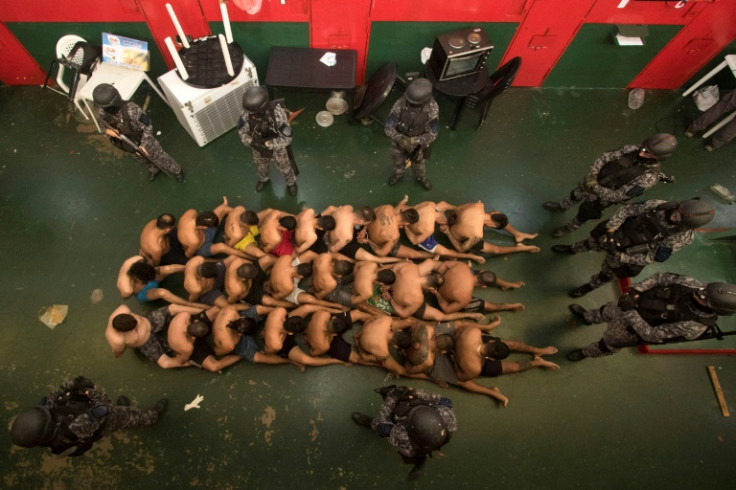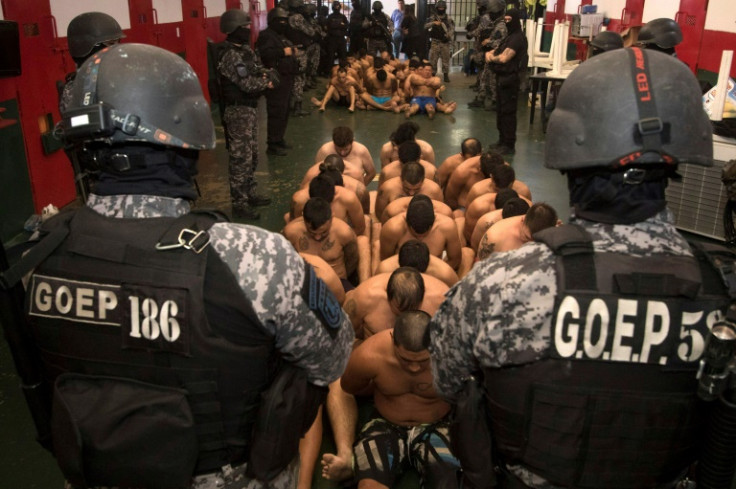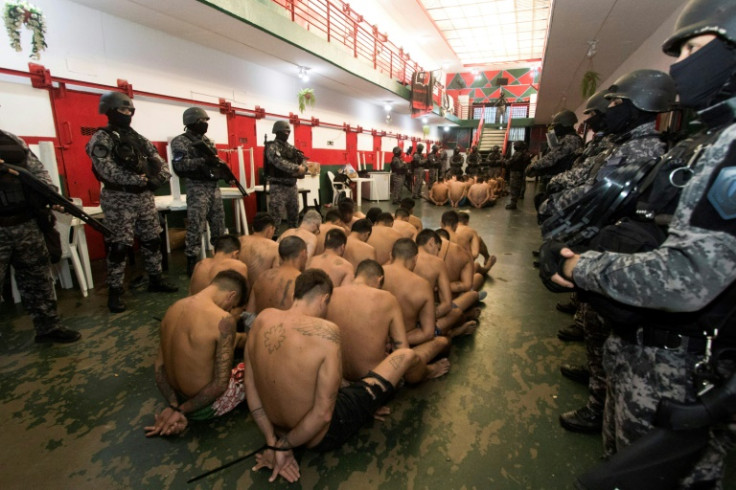
It is an image that has become common in countries hit by gang violence like Ecuador and El Salvador: shirtless and subdued prisoners lined up under the watch of heavily armed police.
Fed up with drug-related gang unrest, the governor in Argentina's bloodiest province of Sante Fe has released a flurry of similar photos in a warning to narcos, along with a promise to finish construction on a long-delayed maximum security prison.
The moves have seen some accuse him of "Bukelization" -- a catchphrase in Latin America referring to the gang-busting tactics of El Salvador's hardline President Nayib Bukele.
Sante Fe governor Maximiliano Pullaro has imposed harsher conditions on prisoners, particularly gang bosses, which he says has earned him 25 death threats since he took office two months ago.
"The more they mess with us, the worse it will be," local security minister Pablo Cococcioni said of druglords, adding that "they won't even be able to blink" once the new prison has been built.
Santa Fe province's capital is Rosario, renowned for a murder rate five times the national average and as the birthplace of football superstar Lionel Messi.
Rosario has a key port on South America's second-longest river after the Amazon -- the Parana -- which has made it a hotspot for the movement of drugs from Bolivia, Brazil, and Paraguay headed to Europe and Asia.
There has been a spate of violence since the regional government published the prison photos.
Last week a bus transporting prison staff came under fire, and this week a taxi driver was shot nine times while another was shot in the head.
"It is clear that the motive is a reaction to the reorganization of the prison conditions of high-profile inmates," said Franco Carbone, the prosecutor investigating the death threats against authorities.
"The aim is to draw attention, not only of authorities but any person living in Rosario, and to create public commotion," he told AFP.
A year ago, gunmen opened fire on a supermarket belonging to the family of Messi's wife in an attack which authorities said was similarly aimed at raising chaos.
El Salvador last year recorded its lowest murder rate in three decades after Bukele's crackdown, which saw him build a massive maximum security prison and round up 80,000 suspected gangsters.
His methods have alarmed rights observers due to allegations of inhumane conditions and widespread abuses, including the detention of minors and torture.
But Bukele is idolized across Latin America, where communities are tiring of gang violence and governments have lost control of prisons, which have become command centers for cartels.
Argentina's government "has adopted the very worrying logic that I call 'Bukelisation'", said criminologist Enrique Font of the University of Rosario.
He said publishing photos of jail raids and subdued prisoners "is just media noise. It is counter-productive" and feeds the phenomenon of identity-based violence.
Last week, Argentina's President Javier Milei praised Pullaro's approach, saying it had led to a 60 percent decrease in murders. However, fact-checkers from the Chequeado disinformation website said this figure is "exaggerated."









